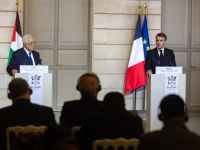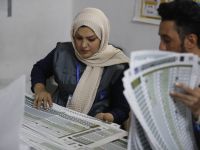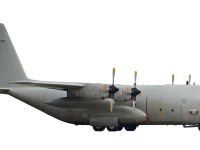As he comes to the end of his term as Kosovo's de facto governor, Bernard Kouchner has perhaps now found one unqualified success to brandish at his legions of critics.
After hundreds of thousands of Kosovo Albanians turned out peacefully to vote Saturday just 17 months after his UN administration arrived in their war-torn province, Kouchner declared himself "proud."
"October 28 was the least violent day in Kosovo since we arrived," he declared at a triumphant press conference just as the count was beginning in the province's 30 municipalities.
The process of voter registration was chaotic, and on polling day around one in ten entries on the electoral roll contained an error, said the poll's organizers, from the Organization for Security and Cooperation in Europe (OSCE).
Many said the elections were being held too soon in a client of continued ethnic and political violence, and that the boycott by Kosovo's Serb minority damaged its credibility.
But despite being forced in some cases to queue for hours, Kosovo's voters behaved with what Kouchner called "dignity."
"It was a long way between nothing and this fantastic October 28," Kouchner said. "Over the past 17 months, we have had critics who said that building a democratic Kosovo was an impossible mission. They have been proved wrong."
The former French minister became head of the United Nations Mission in Kosovo (UNMIK) in June 1999, after a NATO bombing campaign forced Yugoslav troops to abandon their attempt to crush an ethnic Albanian uprising.
The task he was given, under UN Security Council Resolution 1244, was to rebuild the province and give it democratic institutions and "substantial autonomy with the Federal Republic of Yugoslavia."
He attacked the mission with energy and within 16 months, UNMIK had given Kosovo many of the trappings of statehood, including a local police force and an embryonic justice system, albeit one that was severely criticized last week by the OSCE for falling short of international standards.
Some decisions, such as replacing the dinar with the German mark as legal tender, issuing car registration plates and preparing to issue identity cards, were attacked by some foreign capitals as going beyond 1244's provisions.
But the biggest test so far, and one which he seems confident he has passed, was that of introducing the beginnings of democratic rule in a province with little experience of anything but repressive rule.
Kouchner told AFP the week before the poll that he was "tired and used up" by Kosovo, but the apparent success of Saturday's poll seemed to have invigorated him as he bounded away from a triumphant helicopter tour of voting stations.
Now he has more elections to prepare. Already the independence-minded Kosovo Albanians are demanding a legislative poll, which he has said he wants as "soon as possible."
But Kouchner also thinks that the replacement of Slobodan Milosevic by new Yugoslav President Vojislav Kostunica will make it easier to bring Kosovo's Serb minority on board for his grand project -- offering them by-elections next year to allow them to join the new councils.
That, however, might be a job for his successor. Refreshed or not, Kouchner has yet to say he has changed his mind about leaving Kosovo by the end of the year -- PRISTINA (AFP)
© 2000 Al Bawaba (www.albawaba.com)







